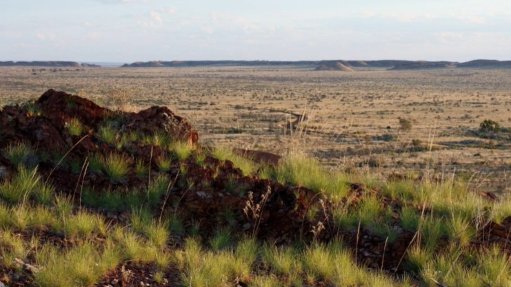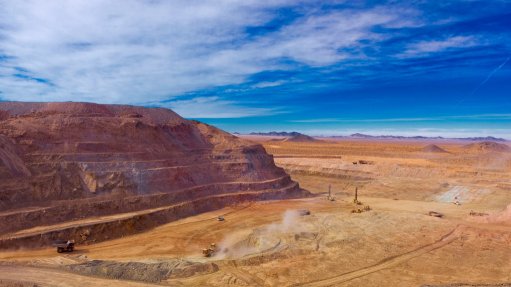Navigating Namibia's mining sector challenges: Strategies for growth and stability
This article has been supplied.
By: Julien Karambua - MD at Workforce Staffing Namibia
Namibia's mining sector, a cornerstone of the country's economy, is undergoing a significant resurgence, particularly around uranium and gold mining. However, while the potential for growth is significant, the sector faces several challenges that must be addressed to ensure sustained progress and stability.
Volatility in commodity prices
The price of key minerals such as uranium, iron ore, cobalt, and lithium have fluctuated considerably in recent years, creating uncertainty for mining operations. This volatility often leads to halts in production and delays in new projects, affecting both operational efficiency and financial planning. Mining companies need to develop strategies that account for these fluctuations, ensuring resilience in the face of market instability.
Infrastructure challenges
A major hurdle for Namibia’s mining industry is the country’s lack of railway infrastructure. The efficient and cost-effective transport of minerals is crucial for maintaining profitability, but the current reliance on trucks as a result of underdeveloped rail networks drives up logistics costs. Investing in and upgrading Namibia’s railway system would allow mining companies to reduce transportation expenses and streamline their supply chains.
Government restrictions
In recent years, the Namibian government has introduced policies aimed at promoting local job creation and adding value within the country by limiting the export of raw minerals. While the long-term goal of this policy is to stimulate economic growth and retain more benefits within Namibia, it has led to short-term disruptions. Mines are currently stockpiling raw materials, awaiting the completion of processing plants that will enable the export of processed minerals.
Strategies to facilitate growth
The cyclical nature of commodity markets means that mining projects often experience fluctuating demands. Mining companies must adopt flexible workforce strategies that allow them to scale operations up or down according to market conditions. By anticipating changes in demand, companies can optimise their resource allocation and avoid the high costs associated with maintaining a permanent workforce during downturns.
In addition, to achieve sustainable growth, it is crucial to focus on developing local skills and creating employment opportunities within Namibia. With a growing number of projects coming online, there is a pressing need for trained professionals in various aspects of mining operations. Mining companies can invest in local training initiatives and collaborate with educational institutions to ensure that the workforce is equipped with the skills required to meet industry demands. This not only aligns with government objectives but also reduces the sector’s reliance on foreign labour. In addition, they should focus on compliance with local laws including employment regulations, and workplace safety standards. By adhering to these requirements, companies not only avoid legal penalties but also build stronger relationships with the government and local communities, fostering a more stable operational environment.
A path forward
As Namibia works to develop a sustainable mining sector, the transfer of skills from expatriates to local workers is essential. It is important for mining companies to focus on structured and measurable skills transfer programs, ensuring that local employees receive the necessary training to take on more specialised roles over time. This process not only helps build capacity within Namibia but also contributes to long-term job creation and the growth of a skilled workforce.
While the challenges facing Namibia’s mining sector are significant, they also present opportunities for growth and innovation. By focusing on workforce development, investing in infrastructure, and adapting to fluctuating market conditions, the industry can continue to thrive. Mining companies operating in Namibia must prioritise local talent development, ensure compliance with regulations, and adopt flexible operational strategies that allow them to navigate the complexities of the market.
Article Enquiry
Email Article
Save Article
Feedback
To advertise email advertising@creamermedia.co.za or click here
Press Office
Announcements
What's On
Subscribe to improve your user experience...
Option 1 (equivalent of R125 a month):
Receive a weekly copy of Creamer Media's Engineering News & Mining Weekly magazine
(print copy for those in South Africa and e-magazine for those outside of South Africa)
Receive daily email newsletters
Access to full search results
Access archive of magazine back copies
Access to Projects in Progress
Access to ONE Research Report of your choice in PDF format
Option 2 (equivalent of R375 a month):
All benefits from Option 1
PLUS
Access to Creamer Media's Research Channel Africa for ALL Research Reports, in PDF format, on various industrial and mining sectors
including Electricity; Water; Energy Transition; Hydrogen; Roads, Rail and Ports; Coal; Gold; Platinum; Battery Metals; etc.
Already a subscriber?
Forgotten your password?
Receive weekly copy of Creamer Media's Engineering News & Mining Weekly magazine (print copy for those in South Africa and e-magazine for those outside of South Africa)
➕
Recieve daily email newsletters
➕
Access to full search results
➕
Access archive of magazine back copies
➕
Access to Projects in Progress
➕
Access to ONE Research Report of your choice in PDF format
RESEARCH CHANNEL AFRICA
R4500 (equivalent of R375 a month)
SUBSCRIBEAll benefits from Option 1
➕
Access to Creamer Media's Research Channel Africa for ALL Research Reports on various industrial and mining sectors, in PDF format, including on:
Electricity
➕
Water
➕
Energy Transition
➕
Hydrogen
➕
Roads, Rail and Ports
➕
Coal
➕
Gold
➕
Platinum
➕
Battery Metals
➕
etc.
Receive all benefits from Option 1 or Option 2 delivered to numerous people at your company
➕
Multiple User names and Passwords for simultaneous log-ins
➕
Intranet integration access to all in your organisation





















